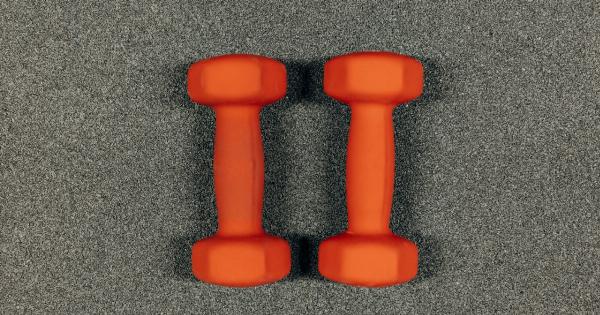Knowing your daily calorie needs is crucial to maintain a healthy weight.
Whether you want to lose weight, gain weight, or simply maintain your current weight, understanding how many calories your body needs each day is the first step towards achieving your goal. In this article, we will walk you through the process of calculating your daily calorie needs.
Why Is Knowing Your Daily Calorie Needs Important?
Calories are units of energy that our bodies require to carry out various functions such as breathing, digesting food, and physical activities.
Everyone’s calorie needs are different, depending on factors like age, sex, height, weight, metabolism, and activity level.
If you consume more calories than your body needs, you will likely gain weight. On the other hand, if you consume fewer calories than your body needs, you will lose weight.
Understanding your daily calorie needs helps you create a personalized diet plan that aligns with your health goals.
Factors Affecting Daily Calorie Needs
Before we dive into the calculations, let’s take a look at the various factors that influence your daily calorie needs:.
- Basal Metabolic Rate (BMR): This is the number of calories your body needs to function at rest. BMR accounts for about 60-75% of the total calories you burn each day.
- Physical Activity Level: The more physically active you are, the more calories you need. An active person may burn up to 3 times more calories compared to a sedentary individual.
- Age: As you age, your metabolism slows down, and consequently, your daily calorie needs decrease.
- Sex: Men typically have higher daily calorie needs than women due to differences in body composition and hormonal factors.
- Weight: Individuals with more body mass require more calories to maintain their weight.
- Height: Taller individuals tend to have higher calorie needs compared to shorter individuals.
Calculating Your Daily Calorie Needs
Now, let’s calculate your daily calorie needs using the Harris-Benedict equation, which takes into account your BMR and activity level:.
Step 1: Calculate your BMR
For men: BMR = 88.362 + (13.397 x weight in kg) + (4.799 x height in cm) – (5.677 x age in years).
For women: BMR = 447.593 + (9.247 x weight in kg) + (3.098 x height in cm) – (4.330 x age in years).
Let’s say you are a 35-year-old woman who weighs 65 kilograms and is 165 centimeters tall. Your BMR would be calculated as follows:.
BMR = 447.593 + (9.247 x 65) + (3.098 x 165) – (4.330 x 35).
BMR = 447.593 + 601.255 + 510.87 – 151.55.
BMR = 1408.168 calories per day (rounded to the nearest whole number).
Step 2: Determine your activity level
The next step is to determine your activity level. This factor accounts for the calories burned through physical activity. Here are the five activity levels along with their corresponding factors:.
- Sedentary (little to no exercise): BMR x 1.2
- Lightly active (light exercise/sports 1-3 days/week): BMR x 1.375
- Moderately active (moderate exercise/sports 3-5 days/week): BMR x 1.55
- Very active (hard exercise/sports 6-7 days/week): BMR x 1.725
- Extra active (very hard exercise/sports and physical job): BMR x 1.9
If our example woman leads a moderately active lifestyle, her daily calorie needs would be:.
Calorie needs = BMR (1408.168) x 1.55.
Calorie needs = 2178.5074 calories per day (rounded to the nearest whole number).
Adjusting Calorie Needs for Weight Goals
Now that you have determined your daily calorie needs, you can make adjustments based on your weight goals:.
To lose weight: Create a calorie deficit by consuming fewer calories than your daily needs. A safe and sustainable weight loss is typically around 0.5-1 kilogram per week, which requires a calorie deficit of 500-1000 calories per day.
To gain weight: Create a calorie surplus by consuming more calories than your daily needs. Aim for a weight gain of 0.25-0.5 kilograms per week, which requires a calorie surplus of 250-500 calories per day.
To maintain weight: Consume the same number of calories as your daily needs.
Conclusion
Calculating your daily calorie needs is an important step towards managing your weight effectively.
By understanding the factors that influence your calorie needs and following the steps outlined in this article, you can create a personalized diet plan that helps you achieve your weight goals while ensuring optimal health.

























